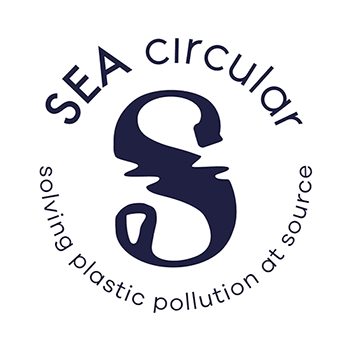
9 March 2020, Bangkok, Thailand: SEA circular is working to advance coordination on regional marine litter and plastic circular economy initiatives.
The need for ambitious actions to combat marine litter in the South-East Asia and East Asian Seas region is growing, alongside the number of initiatives to tackle this immense challenge. This has led to a proliferation of activities, including various regional or multinational projects.
SEA circular convened the ‘Marine litter and plastic circular economy initiatives coordination workshop‘ with the goal to identify synergies between initiatives, strengthen cooperation and avoid redundancy, as well as promote alignment of activities,
The meeting was conducted via teleconferencing, allowing for other project leads based in Cambodia, Singapore, Malaysia, the Philippines, and Nepal to join participants in Thailand. This was also a practical measure in response to COVID-19 meeting protocols.
The meeting was organised by SEA circular, with co-hosts IUCN MARPLASTICs and WWF EPR. A total of 15 projects were represented, from multilateral organizations, bilaterals, NGOs, and CSOs, covering plans and activities along the entire plastic value chain.
A roll call of projects and objectives was provided by participating organizations, identifying the range of activities and interventions underway across the plastics value chain. This is a first step towards mapping out and establishing where there are overlaps and gaps across all the various projects and programmes.
Moving forward
SEA circular is leading the formation of a set of ‘working groups’ which will facilitate project leads to maintain open dialogue with colleagues across the spectrum of organizations. This will support the consideration of synergies and ongoing opportunities, and advance lessons learned across projects and programmes towards less plastics wasted.
SEA circular is also pushing for a common understanding, common baselines and definition of terms, in order for a shared understanding, as well as clear messaging and communications, as each organization interfaces with governments, businesses and the public.
Next steps for the initiative will see SEA circular convening periodic follow-up meetings of the project leads, to discuss opportunities for working together. A project database of ‘marine litter and plastic circular economy projects’ is planned for the SEA circular platform, which will be searchable in terms of countries of implementation, specific scope and main areas of intervention.
To get involved in this ongoing initiative, please contact:
SEA-circular@un.org
Marine litter and plastics circular economy working groups:
Business engagement: commitments, recommendations, best practice sharing, specific industries with focuses, solution-matchmaking
Outreach and education: awareness raising, train-the-trainers, courses, material development
Social considerations: human rights-based approach, gender lens, informal sector engagement, no displacement of livelihoods
Innovation & entrepreneurship: competitions, investments, platforms for showcasing
Policies: national roadmaps, legislation development, plastic & marine litter regulations
Analytics: methodology and implementation of hotspot assessments, land fill composition analyses, and material flow analyses
news
